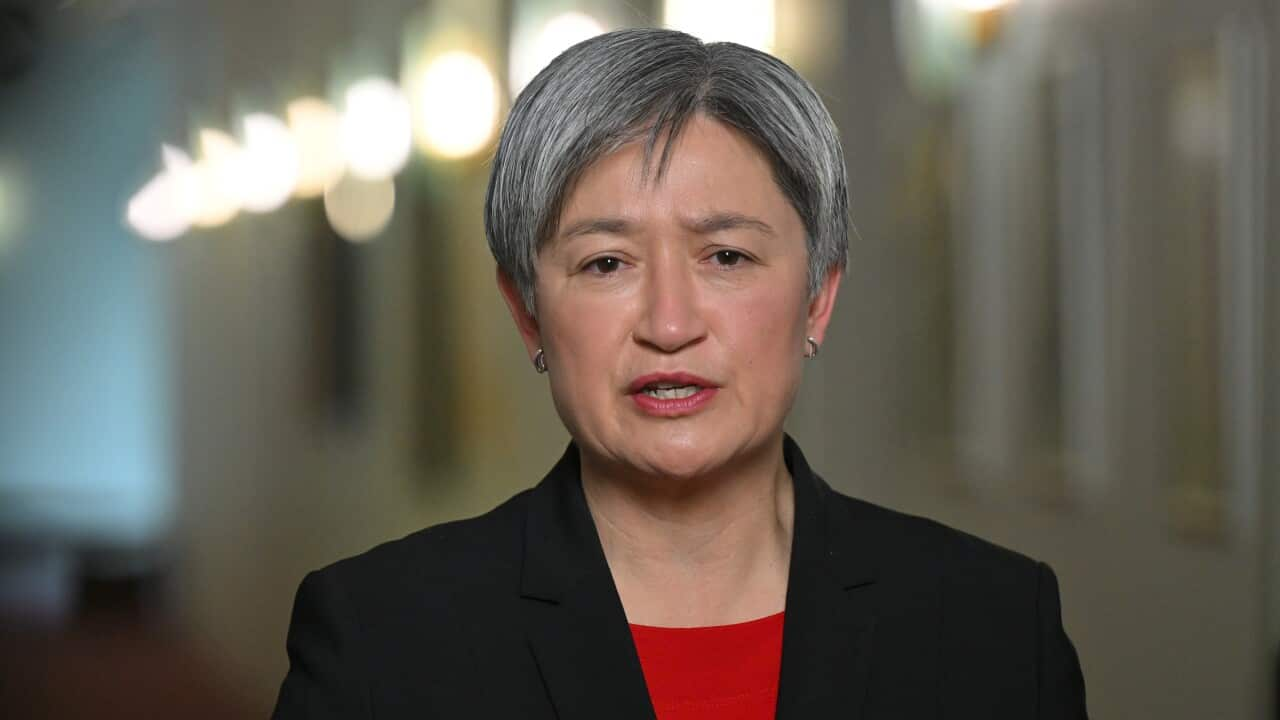Key Points
- The United Nations General Assembly voted in favour of a Palestinian-drafted resolution.
- The resolution says Israel must put an end to its "unlawful presence" in Gaza and the West Bank within 12 months.
- The resolution received 124 votes in favour, but Australia abstained from voting and the US voted against it.
Foreign Minister Penny Wong says she wanted to support a Palestinian-drafted resolution demanding Israel put an end to its "unlawful presence" in Gaza and the West Bank within 12 months, but felt Australia had no choice but to abstain.
The United Nations General Assembly voted on the resolution early on Thursday morning (AEST).
The resolution received 124 votes in favour, while 43 countries — including Australia — abstained. Israel, the United States and 12 others voted no.
Wong said Australia was "disappointed" by the outcome.
"We were wanting to be able to vote for a resolution which did reflect closely the [International Court of Justice] opinion, which gave impetus to a pathway to peace, and we worked very hard in New York with others, including the Palestinian delegation, to seek amendments that would enable us to support it..." she told ABC Radio on Thursday morning.
"We were disappointed that the amendments that we and many others sought were not accepted. For that reason we abstained."
Wong refuted suggestions that abstaining was a way of condoning settler violence in Gaza.
"I don’t agree with that," she said, adding that Australia was already doing many of the things the resolution calls for.
"We do not supply weapons to Israel. , Israeli settlers, and we will deny any extremist settlers a visa to Australia."
Australia has repeatedly said it supports a ceasefire in the conflict between Israel and Hamas.

Palestinians walk past destroyed buildings in the al-Bureij refugee camp in the southern Gaza Strip. Source: EPA / Mohammed Saber
What does the resolution state?
The resolution welcomes a July advisory opinion by the International Court of Justice (ICJ) that said Israel's occupation of Palestinian territories and settlements is illegal and should be withdrawn.
The advisory opinion — by the highest UN court, also known as the World Court — said this should be done "as rapidly as possible", although the General Assembly resolution imposes a 12-month deadline.
The General Assembly resolution also calls on states to "take steps towards ceasing the importation of any products originating in the Israeli settlements, as well as the provision or transfer of arms, munitions and related equipment to Israel ... where there are reasonable grounds to suspect that they may be used in the Occupied Palestinian Territory".
The resolution is the first to be formally put forward by the Palestinian Authority since it gained additional rights and privileges this month, including a seat among UN members in the assembly hall and the right to propose draft resolutions.

Riyad Mansour, the Palestinian ambassador to the United Nations, said his people faced an "existential threat" and urged member states to vote in favour of the resolution. Source: AAP / Yuki Iwamura/AP
In 2005, Israel ended its permanent military presence in Gaza, withdrawing its troops and dismantling its settlements.
But the enclave has remained under a land, air and sea blockade by Israel since 2007, and Israel is still considered to be the occupying power under international law.
The UN considers both Gaza and the West Bank to still be under Israeli occupation, which Israel rejects.
Although neither the ICJ's advisory opinion nor the resolution is legally binding, it carries weight under international law and support reflects how the world perceives the conflict.
What were the arguments for and against the vote?
US ambassador to the UN, Linda Thomas-Greenfield, condemned the draft resolution as "inflammatory" and argued it would not help achieve peace.
Ahead of the vote, Opposition foreign affairs spokesperson Simon Birmingham called for the Albanese government to reject the motion, calling it "one-sided" in an interview with Sky News on Tuesday, as it did not condemn Hamas.
But the Greens and the Palestinian envoy in Australia, Izzat Abdulhadi, called on Australia to support the motion.
Abdulhadi said supporting the non-binding resolution would be in line with the opinion of the UN's top court, the ICJ which the federal government said it respected.
"Each country has a vote, and the world is watching us," Palestinian UN ambassador Riyad Mansour told the General Assembly on Tuesday before the vote.
"Please stand on the right side of history. With international law. With freedom. With peace."
Israel's ambassador to the UN, Danny Danon, pressed other member nations to reject the resolution, as it fails to mention the atrocities inflicted by Hamas in its October 7 attack on Israel, calling it "an attempt to destroy Israel through diplomatic terrorism".
The support for the resolution isolates Israel days before world leaders travel to New York for their annual UN gathering.
Israeli Prime Minister Benjamin Netanyahu is due to address the 193-member General Assembly on 26 September, the same day as Palestinian President Mahmoud Abbas.
Hamas-led militants killed some 1,200 people during its October 7 attack on Israel, taking around 250 hostages.
The Israeli military's retaliatory assault on Gaza has killed more than 41,000 people, according to the enclave's health ministry.
With additional reporting by the Australian Associated Press











